Link

2 notes
·
View notes
Photo


Make yourself a t-shirt.
2 notes
·
View notes
Text
So the Federal Reserve might get audited? Okay, that could be interesting, sure. Let's march all those Ayn Rand readers into the unisex restroom and give 'em a round of swirlies they'll never forget. Let's squirt a lemon into the pyramid's eye. It'll be lots of fun, and nothing bad could happen afterwards, ever. I get that.
But I can't really get excited about it on a personal level, see.
If something bad should happen to someone I care about due to ideologically driven malfeasance of a politician, cop, or concerned citizen culture warrior, I'd better not have to hear anyone continuing to jibber excitedly about how cool it is that we're sticking it to the Fed, or... well...
I'm sorry, but I'm going to *have* to urinate on you.
Look, I won't have a choice, okay?
There will be NOTHING that I can do about it.
My hands will be tied,
and my dick will be out,
and my spray shall be righteous and mighty.
Please don't fuck with my friends, because my life isn't really worth not defending them.
xoxo sc
1 note
·
View note
Photo

http://archive.org/details/AMT20160416
0 notes
Photo

I don't know who the author of this (probably slightly faked) photograph is, so I'm not going to put it up on Bandcamp as an album cover image or anything. Not that anyone would care. I just want my loved ones to know that, if you don't hear from me again after tonight, it's because I went too far trying to chase this sound in the recording studio.
0 notes
Video
undefined
tumblr
Thirty years of this hi-fi standard-bearer. Crank up Pep Pep's old Victrola and be thankful that 2016 hasn't taken #GarblePeters from us yet.
0 notes
Photo

I sure hope I get sick of this stuff soon.
14 notes
·
View notes
Text
Someday there will come a National Republican Convention, probably in Tampa or someplace like that, when all the males in attendances crack at once beneath their collective lifetimes of partially self-imposed sexual repression. Without discussing it or even knowing why, they'll all whip their dingii out in unison and begin rolling them around together like they're trying to start several thousand indoor campfires. The women will weep in horror and shame, for they had all dreamt of this happening just the night before and couldn't bring themselves to warn anyone the next morning.
1 note
·
View note
Photo

"Hipster" is a word white people use when we get upset about white people co-opting white culture. And golly do we get upset! If you're gonna wear flannel and a beard, like my Grampep and his Pepper afore him, it had better be for the right reasons, peckerwood.
0 notes
Text
degeneration
"Whatever you now find weird, ugly, uncomfortable and nasty about a new medium will surely become its signature. CD distortion, the jitteriness of digital video, the crap sound of 8-bit -- all of these will be cherished and emulated as soon as they can be avoided. It’s the sound of failure: so much modern art is the sound of things going out of control, of a medium pushing to its limits and breaking apart. The distorted guitar sound is the sound of something too loud for the medium supposed to carry it. The blues singer with the cracked voice is the sound of an emotional cry too powerful for the throat that releases it. The excitement of grainy film, of bleached-out black and white, is the excitement of witnessing events too momentous for the medium assigned to record them."
Brian Eno
1995
“Degeneration” is not a word that most people would think has a pleasant ring to it. Would-be audio professionals in particular must be encouraged, if not instructed outright, to to think of degeneration as an enemy of professionalism. A ruthless standard of perfection -- or the appearance of one -- must be maintained throughout the process of sound production and reproduction... right up until the moment when it is committed to its final form for commercial release. That, agrees the industry as a whole, is when the foundation can be allowed to settle, and the rot can creep in, and the mushrooms can begin to grow. Degeneration is where sonics can develop personality.
Degeneration is inevitable in even the best cases, but it is reliably the main reference point in discussions about the merits of various consumer media formats. Physical media, those objects d’art grandfathered in from the previous century, seem to get the worst reputation for degenerative potential. The vinyl disc, for example, has its signal distorted a small amount every time it is played, by the very diamond needle that reads it. It is also hideously easy to damage even further by improper handling. But the “long-player” has proven a commercially (if not bodily) durable format, even if its appeal is now mainly to “collectors.” And why shouldn’t it be appreciated by the connoisseur? If not abused, the LP develops a character all its own over time, faster the more often the music is enjoyed. The frequent listener could, without even realizing it, come to recognize and on some level appreciate the various pops and clicks, beauty-marks and light scars this particular copy has developed over time. “Ugh,” the listener might think, “Dave’s copy doesn’t have that recurring tick in the quiet part of this song. That’s okay. Dave’s copy skips a band on the best song of side two. Dave has kids who ruin his stuff. I don’t have kids. My life is pretty okay.”
Many years later, one of Dave’s progeny may go digging through the folks’ old “long-players” (heh heh) and go to the trouble of transferring some of the less damaged platters to an abstract digital format, with its own particular set of parameters to be fussed over, not because that music is difficult to find on a more contemporary format, but because of an unapologetically irrational fondness for the sound quality (and maybe even some sentimental value for Dad’s beat-up old records). Even the term “long-player” (an antiquated name that has more or less survived despite it being the popular medium with, at roughly 45 minutes, the tightest time restrictions) seems appealingly quaint.
The “compact disc” (a term not quite as dated as “LP” but still a bit corny) continues to stand proud with its sixteen faithful digital bits of resolution, in bold defiance of those who would claim (and who can prove otherwise?) that they can in fact hear the abrupt frequency cutoff at 22,050 Hertz and are steadfastly grumpy about missing all the good stuff going on above it. The CD has never heard of the Loudness Wars, has no idea of the ridiculous gain boosts the poor mastering engineer was instructed to do at the eleventh hour, he who knew any educated protest would fall on not-coincidentally deaf ears. All the CD knows is that it was manufactured to be an objectively perfect copy of an objectively perfect copy of... something, and sales figures be damned, it’s still the consumer medium with the truest claim to the title of “lossless” (given how few people were at all impressed by the “Super Audio CD” beyond its capacity for surround sound). The CD still believes itself to be above such tragic faults as degradation, or even sound coloration, when a few spins of any CD from the early 1980s will strongly suggest otherwise.
And cassettes, oh, please don’t get anyone started on cassettes. Well, I’ve got 500 words to fill, so I may need to get started on cassettes. That Eno quote up top took up 143 words all by itself but I’m not sure I can count that. That’s fine. I like creative writing assignments. That’s what this is, right? Maybe it’s supposed to be more of a starchy, collegey treatise. I hope not. There’s more than one very good reason I didn’t go to a proper college. Of course, it’s quite possible that whomever is tasked with the unfortunate chore of grading this particular bit of homework is so numb to this stuff by now that he or she just checks the word count and moves along. That’s what I would do, I think.
Anyway, I dig tapes, in theory at least. The “compact cassette” (having borne the adjective for years before that digital upstart came along) comes fully equipped with hard plastic armor right out of the box, and boasts superior droppability. The cassette was for many years thought the ideal format for someone who wanted to bring a boombox to a construction site, or who was just a clumsy oaf in general. It bears some practical similarities to the vinyl disc, though. Despite its armor, the fidelity of the audio seems to be constantly under attack from the first moment of its existence, and the user must either be vigilant or passively accept the degradation, however quickly it may or may not come. Just remember not to use the tape deck in the bedroom alarm clock. That thing ate my Duke Ellington. And move that tape out of the sunny spot, and for crying out loud don’t set it right on top of the speaker WHAT are you DOING there is a MAGNET IN THERE.
Unless, of course, you dig what that sounds like.
Let’s face it: some of us dig what that sounds like. The repetitive, bass-heavy click of a scratched wax disc, or the briefly but recurringly muffled tone of a tape whose signal has been somehow demagnetized in spots can be, to a certain mindset, as inexplicably sexy as Samuel L. Jackson with an eye patch. I mean, clearly an indelible wound was dealt at some point, but damned if the damaged party doesn’t wear it well. The mystery is thus enhanced. Often, the effect of an less-than-entirely-successful medium is desired in earlier stages of audio production than the final push towards the buying public (this is, for example, how the overdriven electric guitar was discovered and exploited). At the same time, to compensate for such practical limits is the necessity that bore the invention of the compressor, which can yet deliver its own imperfect color to the tone of the sound depending on how the device is built.
None of the old physical audio formats like to talk about this century’s new generation of “digital” media. For a while they loved to talk about it, and that talk was always trash. But after a while they felt like they were repeating themselves. The cassette almost used the phrase “like a broken record” and felt a little dirty for even thinking it. The compact disc, though it still remembers being the target of old-guard derision for its first several years on the market, ruffles the pages of its full-color booklet with resentment at the inferior MP3 for having appropriated the descriptor “digital” all to itself, and would scoff at the ignorant masses’ willingness to accept the almost certain but maddeningly irregular loss of all frequencies above 16 kHz, but that conversation usually leads to FLAC, and... well, that’s when the CD turns the subject back to packaging, and encourages the LP to get involved in the exchange. The LP doesn’t really understand what the various non-corporeal digital media are or how they work, let alone how they figure into being a “deejay,” and is fine with talking about something else.
Someone mentions the MiniDisc. Everyone falls into a respectful silence and keeps their opinions to themselves.
Okay, I’m well past a thousand words by this point. I could quote Eno again if I wanted. Or anyone else. I could just type a string of cuss words in here. Balls, for example. Boners and farts, ram a lam a ding dong. Trump Trump Trump. Boy, I sure wish I could have more homework assignments like this one, and fewer assignments where I have to read a 98-page manual for a mixing console without getting so excrementally bored that I absolutely have to stop. Guess I’ll get on that next.
The point of this essay, if indeed I am required to have one, is that although the audio professional (whether aspiring or established) is expected to believe and behave as if degeneration is wholly avoidable and of paramount importance to overcome, the fact of the matter is that the spectre of corruption looms over the entire process, and cannot be stopped from settling in once production is complete. The most interesting studio work, in my opinion, is done by engineers who know how to appreciate, embrace, and exploit the beauty of decay along the way.
1 note
·
View note
Photo

HAPPY SCRAPPY: HERÖ PUP
“VINTAGE URINE JARS”
HS:HP got backed the heck over by an ice cream truck five years ago.
Has the world become a better place since then?
HISTORY WILL FORGET TO DECIDE
http://archive.org/details/hshpvintageurinejars
1 note
·
View note
Photo

THANK YOU MR. EVER CIRCLING SKELTAL
0 notes
Photo

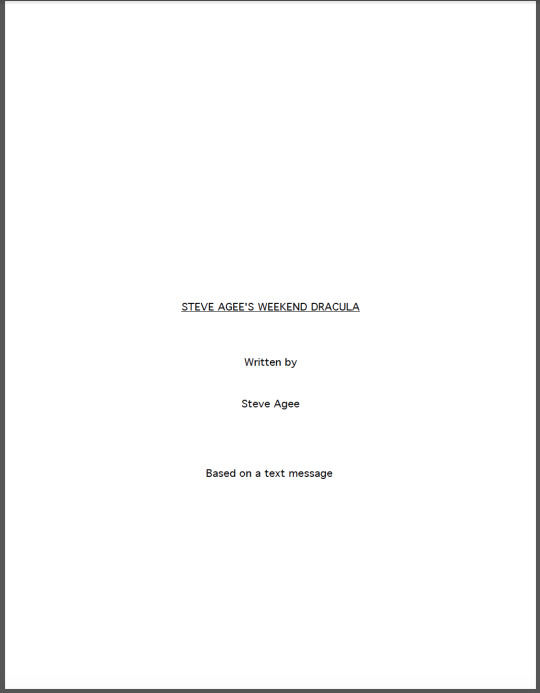
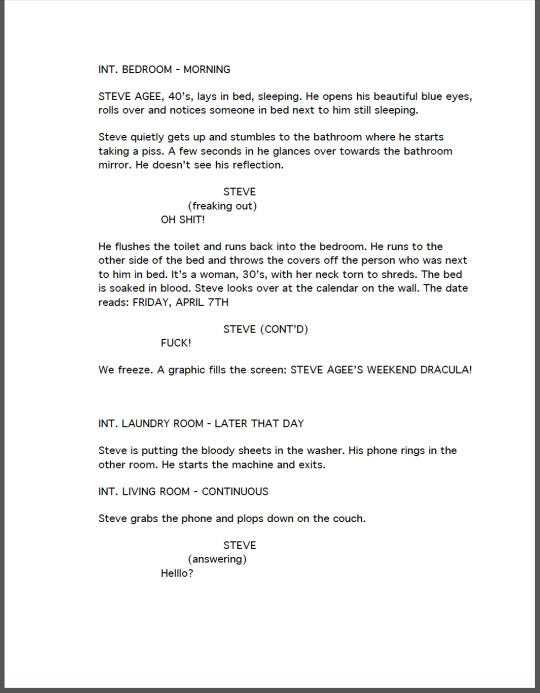
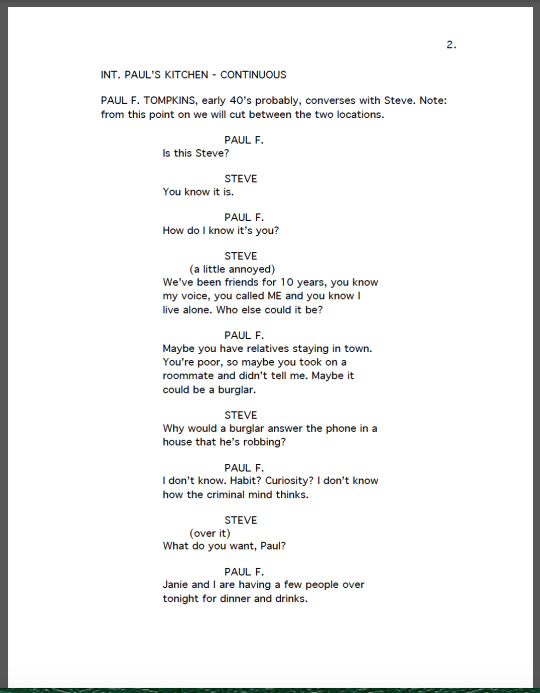

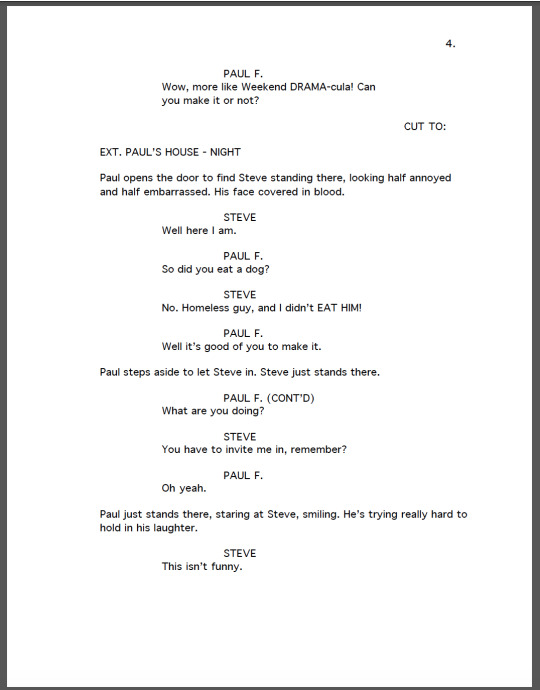

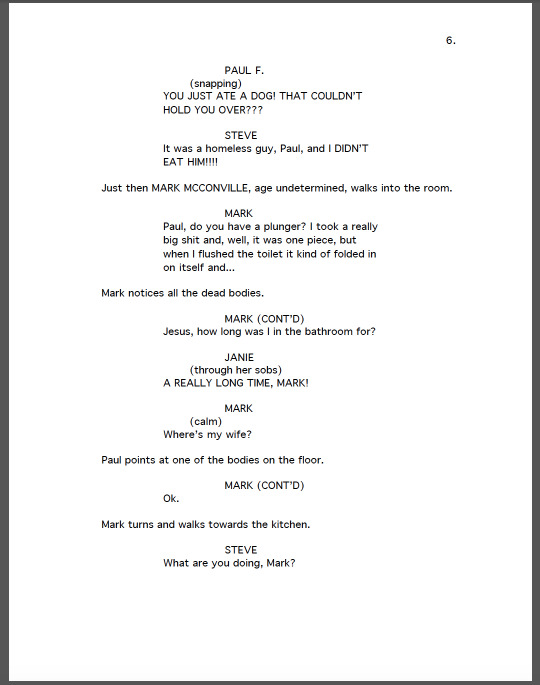
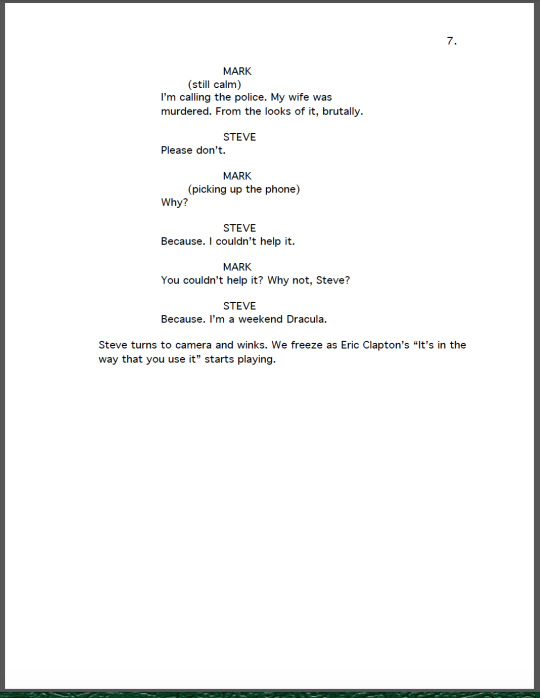
Steve left a party by saying, in a somewhat loud but very cordial tone, “Good evening.” Once he was out the door, I said, “What a Dracula!” Ben Blacker replied, simply, “’Steve Agee’s Dracula.’” And then this.
8K notes
·
View notes
Photo


Chris Lord-Alge has a very British-sounding name, but in fact he is of American origin. His career as a recording and mixing engineer of note goes back to the 1980s. His primary specialty is the creative application of dynamic range compression. Although Mr. Lord-Alge was once very outspoken in his preference for outboard processors over software, it seems the capabilities of DAW technology eventually caught up to his aesthetics. In 2010 he licensed the use of his name to the prestigious software developer Waves Audio Ltd., whom he helped to design a suite of very nice (and profitable) audio processing plug-ins.
Mr. Lord-Alge (who might prefer to simply be called “Chris,” as his brother Tom is also a highly respected audio engineer) is a proponent of getting the mix right “in one pass,” as opposed to laboring for hours over a single track until everything is absolutely perfect. “Time is your enemy in mixing,” he has said. “The longer it takes, the worse it gets. It turns into a big stinking pile very fast if you don’t get a handle on it.” This statement implies an unfortunate lack of regard for the potential merits of big stinking piles, but his surgical-strike methods do seem to yield consistently good results that get him paid. He has mixed tracks for a variety of industry up-and-comers and long-established heavy-hitters, and his credits that interest me include (but are certainly not limited to) David Bowie, Peter Gabriel, the Smashing Pumpkins, Stevie Nicks, Deftones, Seal, and Apocalyptica. Mr. Lord-Alge has won several “Grammy Awards,” which are expensive-looking paperweights that are given to recording engineers for being very good at their jobs (and to some recording artists, so that they don’t feel left out). He is not at all shy about putting the words “LORD OF THE MIX” on the front page of his official website.
1 note
·
View note
Link
As of this typing, no copyright trolls have yet flagged this as Evil and Wrong, probably because no one knows or cares about Veoh.com.
2 notes
·
View notes
Note
If your weblog suffered from an excruciating medical condition, what would it be? I'm asking for a friend, not for myself.
What's it called where you're not eating much of anything, but you're painfully, helplessly constipated anyway? Probably that.
0 notes
Link
Had my first day of fancypants audio college today. Most of my classmates seemed to be aiming for careers in studio tinkering, where the boring pop-country and fake hip-hop of tomorrow will be Pro-Tooled into mathematical perfection and shat out directly into Clear Channel's waiting hands. I get the impression that this might indeed be the default cirriculum for those of us who don’t have a specific path in mind. I hereby pledge to my 15 years’ worth of noise-minded homeboys and homegirls that I shall not accept modern FM radio production values as the standard by which I should craft my own professional aesthetic. If I repeatedly tell my instructors that Ween’s version of “Good Ol’ Mountain Dew” is what I consider to be the proper use of pitch correction, maybe they'll take the hint and help me find my own path. Otherwise, I might be in for a rough year of mediocre report cards, followed by a career of mopping corporate party-rapper puke off of studio floors.
2 notes
·
View notes